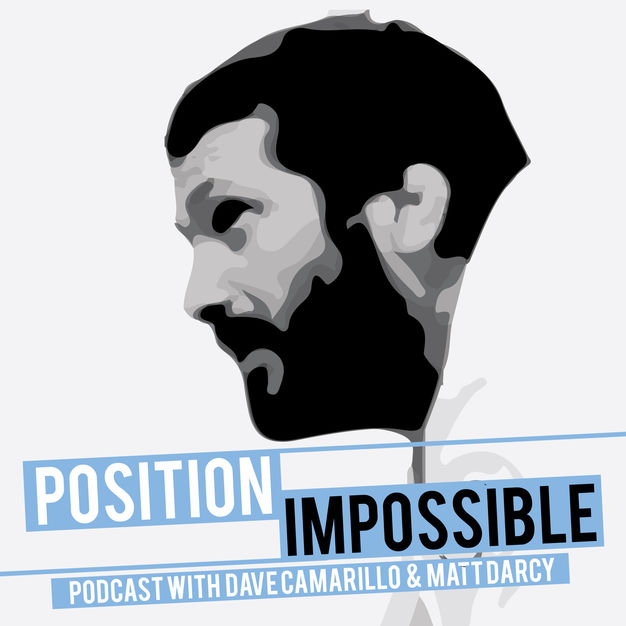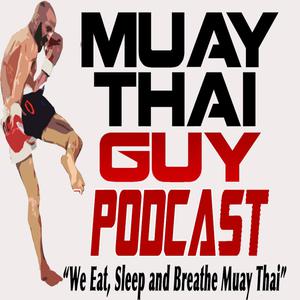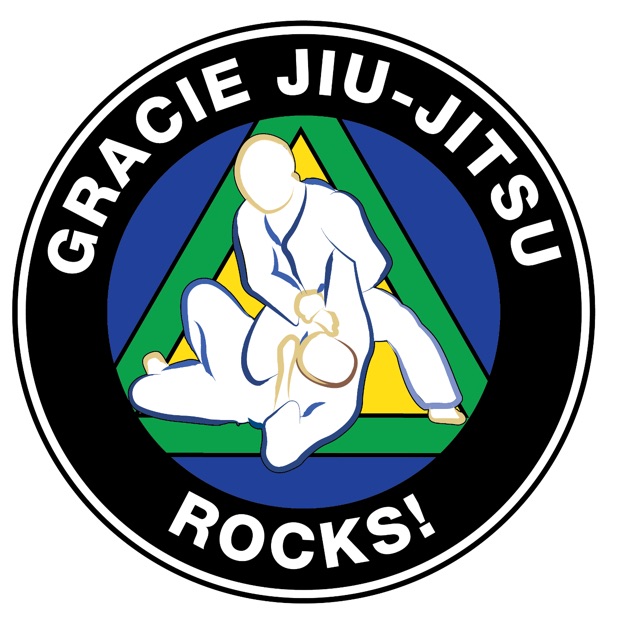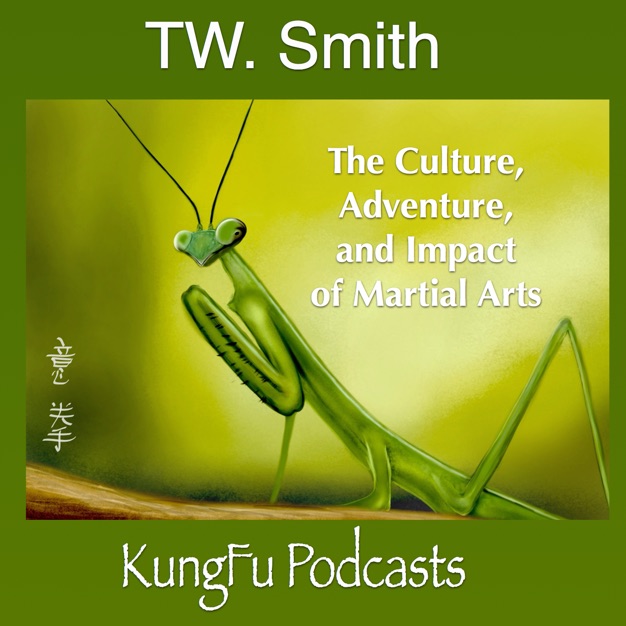
whistlekick Martial Arts Radio
whistlekick Martial Arts Radio
Traditional Martial Arts Interviews, Stories and More
- 25 minutes 3 secondsEpisode 973 - Teaching to the Test
SUMMARY
In this episode, Jeremy and Andrew delve into the concept of 'teaching to the test' within martial arts education. They explore the implications of standardized testing, the challenges of curriculum size, and the importance of fostering genuine understanding over mere memorization. The conversation emphasizes the need for creative teaching methods and the balance between evaluating competency and ensuring students grasp the material deeply. Ultimately, they encourage instructors to reflect on their teaching practices and curriculum design to enhance student learning and growth.
TAKEAWAYS
-
Teaching to the test often leads to memorization rather than understanding.
-
Standardized testing can create pressure on teachers to prioritize test results.
-
In martial arts, the test is often determined by the same person creating the curriculum.
-
A simplified curriculum can help focus on essential skills.
-
Quality over quantity in curriculum is crucial for effective learning.
-
Creative teaching methods can enhance student engagement and understanding.
-
Evaluating competency should go beyond just passing a test.
-
Students should not have to cram to meet testing requirements.
-
Bonus material can enrich the learning experience without overwhelming students.
-
Instructors should regularly assess their curriculum and teaching methods for effectiveness.
21 November 2024, 5:00 pm -
- 55 minutes 15 secondsEpisode 972 - Director Kory Martin JuulSUMMARY In this conversation, Kory Martin Juul shares his journey from a young martial arts enthusiast to a filmmaker involved in major productions like The Matrix and Lord of the Rings. He discusses the importance of storytelling in martial arts films, the cultural significance of different fighting styles, and how his experiences living in various countries have shaped his understanding of martial arts. Kory emphasizes the deeper philosophical aspects of martial arts training and how they can inspire personal growth beyond physical skills. In this conversation, Kory Martin Juul shares his extensive journey through martial arts, highlighting the physical, mental, and spiritual transformations he experienced over the years. He discusses the evolution of his training from traditional styles to a more holistic approach that incorporates diet and personal development. Kory also delves into his experiences with shamanism in the Amazon, which further expanded his understanding of healing and consciousness. Finally, he reveals his passion for storytelling through film, specifically his project 'White Tiger Legend,' which aims to convey the deeper lessons of martial arts beyond mere physicality. He discusses how asking 'why' can lead to deeper understanding and mastery, and how a focus on fewer techniques can enhance learning and retention. The conversation also touches on the philosophical implications of martial arts training and its impact on life beyond the dojo. TAKEAWAYS • His background in filmmaking includes working on iconic films like The Matrix and Avatar. • He emphasizes the cultural significance of different martial arts styles in films. • Kory's journey reflects the impact of martial arts on personal development. • He highlights the engagement level in martial arts training compared to other sports. • Kory's experiences in various cultures have enriched his martial arts perspective. • He sees martial arts as a means of personal enlightenment and growth.Kory's passion for choreography stems from his visual effects work in films. • Training in multiple styles allowed for a deeper understanding of martial arts. • Physical training led to changes in diet and overall health. • Spiritual elements of martial arts emerged through practice and katas. • Experiencing shamanism opened new pathways for healing and growth. • Martial arts training empowers personal development and self-discovery. • Creating a film was a way to share martial arts knowledge with a broader audience. • The fight scenes in films should advance the story, not just showcase skills. • Kory's journey reflects a transformation from physical training to mental and spiritual growth. • The film 'White Tiger Legend' aims to convey the deeper meanings of martial arts. • Rediscovery in martial arts is essential for personal growth. • Asking 'why' is crucial for understanding and evolution. • Mental training is as important as physical training. • Kung Fu represents mastery, not just a set of techniques. • Focus can significantly enhance achievement in any field. • Training in martial arts can lead to unexpected life paths.18 November 2024, 5:00 pm
- 27 minutes 9 secondsEpisode 971- Should Teaching be Required for Black Belt
SUMMARY
In this episode of Whistlekick Martial Arts Radio, hosts Jeremy and Andrew delve into the topic of whether teaching should be a requirement to earn a black belt in martial arts schools. They explore the nuances of teaching responsibilities, the value of teaching in enhancing one's own martial arts skills, and the importance of creating a structured leadership pathway for students. The conversation emphasizes the need for incremental teaching experiences and guidance, rather than expecting immediate competency from newly promoted black belts. The hosts also discuss the broader implications of teaching in martial arts, including the development of soft skills and the benefits of diverse teaching styles.
TAKEAWAYS
-
Teaching can take many forms, from drilling to full class instruction.
-
Black belts should have some ability to convey knowledge.
-
Incremental teaching experiences are crucial for student development.
-
Teaching helps deepen understanding of martial arts material.
-
Schools should prepare students for teaching roles before they reach black belt.
-
A leadership track can help students transition into teaching roles.
-
Teaching can build resilience and confidence in martial artists.
-
Not all black belts are ready to teach immediately after promotion, if not trained ahead of time.
-
Different teaching styles can resonate with different students.
-
Feedback and communication are essential for improving teaching methods.
14 November 2024, 5:00 pm -
- 1 hour 24 minutesEpisode 970 - Sensei Andy MorrisSUMMARY In this conversation, Sensei Andy Morris discusses the evolution of martial arts training, focusing on his personal journey in karate since he began training at 18. He explores the changes in training environments, the impact of technology on martial arts, and the importance of balancing life responsibilities with martial arts practice. Sensei Morris shares insights on the community aspect of training and the perseverance required to continue in the martial arts journey. He discusses his experiences with promotions, teaching, and the evolution of his training, highlighting pivotal moments that shaped his understanding of karate and its broader context. The conversation reflects on the growth and development within martial arts, the importance of mentorship, and the value of cross-training and community engagement. He emphasizes the importance of building connections, mastering fundamentals, and the continuous pursuit of knowledge. He reflects on his experiences in Okinawan karate, the evolution of his practice, and the significance of health and wellness in sustaining a lifelong commitment to martial arts. Sensei Morris encourages practitioners to remain passionate and persistent in their training, highlighting that the journey of learning never truly ends. TAKEAWAYS • Karate has evolved significantly since the early 1980s. • The internet has changed access to martial arts information. • Community and relationships formed in martial arts are lasting. • Perseverance is key to staying in martial arts long-term. • Life responsibilities can impact martial arts training schedules. • Training environments have changed over the decades. • Self-defense and fitness are common motivations for starting martial arts. • The culture of Okinawa plays a significant role in karate training. • Martial arts training is a lifelong journey that evolves with the individual. • Education is crucial for career advancement in martial arts. • Training can be adapted even when away from the dojo. • Promotions in martial arts can be challenging but require perseverance. • Teaching is a natural progression for advanced students. • Finding a stable training environment is essential for growth. • Involvement in organizations like AAU can broaden martial arts exposure. • Pivotal training moments can redefine one's understanding of karate. • Growth in martial arts often comes from uncomfortable experiences. • Community and camaraderie are vital in martial arts training. • Continuous evolution in training is necessary for mastery. • The ethos of martial arts extends beyond the dojo. • Fundamentals are essential for advanced martial arts practice. • Continuous learning is crucial for evolving as a martial artist. • Training every day is key to mastery and understanding. • Engagement with the community enriches the martial arts experience.This episode is sponsored by Kataaro. Please check out their site at www.kataaro.com and use the code WK10 to save 10% off your first order. And be sure to ask them about a wholesale account for school owners!11 November 2024, 5:00 pm
- 1 hour 15 minutesEpisode 966 - Sensei Jim Pizii
SUMMARY
In this episode of Whistlekick Martial Arts Radio, Jeremy and Sensei Jim Pizii discuss the profound impact of martial arts on personal growth, community building, and the importance of continuous learning. They explore Sensei Pizii's journey through various martial arts styles, the politics within the martial arts community, and the significance of finding the right training environment. The conversation emphasizes the value of humility, the role of ego, and the necessity of maintaining physical activity as one ages. Sensei Pizii shares insights on how martial arts can serve as a lifelong pursuit of knowledge and self-improvement.
TAKEAWAYS
· Martial arts fosters community and personal growth.
· Building bonds with fellow martial artists is essential.
· Continuous learning is a key aspect of martial arts.
· Politics can influence training experiences.
· Finding the right training environment is crucial.
· Ego can hinder progress in martial arts.
· Practical application of techniques is vital.
· Different martial arts styles offer unique insights.
· Staying active in later years is important for health.
· Martial arts is a lifelong journey of discovery.
This episode is sponsored by Kataaro. Please check out their site at www.kataaro.com and use the code WK10 to save 10% off your first order. And be sure to ask them about a wholesale account for school owners!
11 November 2024, 12:32 pm - 26 minutes 28 secondsEpisode 969 - Should Having a Black Belt be Required to Teach
SUMMARY
In this episode of Whistlekick Martial Arts Radio, Jeremy and Andrew discuss the evolving standards of teaching martial arts, particularly the question of whether having a black belt should be required to teach. They explore the differences in teaching ability and competency, the benefits of peer learning, and the importance of continuous education for instructors. The conversation highlights that teaching is a skill that can be developed and that rank does not necessarily correlate with teaching ability.
TAKEAWAYS
-
A black belt is not a universal standard for teaching.
-
Teaching ability is distinct from martial arts competency.
-
Peer learning can enhance the educational experience.
-
Instructors should be trained in teaching methods.
-
Rank can vary significantly between different martial arts schools.
-
Experience does not always equate to teaching skill.
-
It's beneficial for students to learn from peers.
-
Teaching can help deepen one's own understanding of the material.
-
Continuous education is essential for martial arts instructors.
-
The martial arts community is evolving in its approach to teaching.
-
Jeremy and Andrew are out of practice in doing the outro together.
7 November 2024, 5:00 pm -
- 1 hour 1 minuteEpisode 968 - Master George RegoSUMMARY In this engaging conversation, Jeremy and Master George Rego explore the intersections of martial arts, self-defense, and personal preparedness. They discuss the importance of a self-defense mindset, the role of confidence in preventing attacks, and Master Rego's personal journey into martial arts, highlighting how early experiences shaped his passion for the discipline. In this conversation, he shares his journey into martial arts, detailing his early fascination with a dojo and the impact it had on his life. He discusses the evolution of his training, the importance of mentorship, and how martial arts shaped his character and academic pursuits. Master Rego reflects on his commitment to teaching and the legacy he aims to pass on to future generations, including the publication of his book documenting the history of jiu-jitsu in America. In this conversation, he discusses the significance of research in writing martial arts books, the challenges of navigating historical narratives, and the importance of community and continuous improvement in martial arts training. He also shares insights from his book on the founding of Jujitsu and Judo in America, emphasizing the need for accurate historical representation while acknowledging potential controversies. The discussion also highlights the value of investing in training and the philosophy of kaizen, or continuous improvement, in martial arts practice. TAKEAWAYS • Self-defense is not just physical; it's a mindset. • Preparation for emergencies, like hurricanes, is a form of self-defense. • Swimming is an essential life skill, akin to martial arts. • Confidence and body language can deter potential threats. • Self-defense training promotes physical autonomy and awareness. • Mitigation of risks is key to personal safety. • There are no guarantees in life, but we can increase our chances of success. • Martial arts can foster a sense of community and support. • Teaching confidence is crucial for martial arts instructors. • The approach to martial arts can be holistic and self-defense oriented. • Martial arts can keep you focused and disciplined in school. • The book documents the history of jiu-jitsu in America. Research-driven writing enhances credibility and depth. • Historical accuracy is crucial in martial arts literature. • Controversial narratives can arise from historical interpretations. • Community support is vital for martial arts growth. • Continuous improvement leads to long-term success. • Investing in training yields compounding benefits over time. • Self-filtering approaches foster a positive training environment. • Engagement with local media can amplify reach. • Sharing experiences enriches the martial arts community.This episode is sponsored by Kataaro. Please check out their site at www.kataaro.com and use the code WK10 to save 10% off your first order. And be sure to ask them about a wholesale account for school owners!4 November 2024, 5:00 pm
- 52 minutes 17 secondsEpisode 967 - Roundtable Discussion: Ego in Martial Arts
SUMMARY
This conversation delves into the complex nature of ego within martial arts, exploring its implications on leadership, learning, and personal growth. The participants discuss how ego can serve as both a barrier and a motivator, emphasizing the importance of humility and the willingness to learn from others. They highlight the distinction between confidence and ego, and how a white belt mindset can foster continuous growth and collaboration in martial arts communities.
TAKEAWAYS
-
Ego can be both positive and negative depending on its expression.
-
Hierarchy in martial arts can create barriers if not managed with humility.
-
Effective leaders listen to their subordinates and value their input.
-
Confidence allows for openness to learning, while ego creates fear of being wrong.
-
The martial arts community thrives on shared knowledge and collaboration.
-
Humility is essential for true leadership and growth in martial arts.
-
A white belt mindset encourages continuous learning and growth.
-
Ego can deter individuals from pursuing martial arts due to negative experiences.
-
The law of the lid suggests that a leader's limitations can hinder their students' growth.
-
Helping others grow is a fundamental responsibility of a martial arts instructor.
31 October 2024, 4:00 pm -
- 39 minutes 23 secondsEpisode 965 - Should Schools Have a Student Creed
SUMMARY
In this conversation, the hosts discuss the significance of having a student creed in martial arts schools. They explore personal experiences with creeds, their impact on character development, and the importance of authenticity in creating a creed that reflects the values of the school and its community. The discussion highlights how creeds can serve as guiding principles for students, fostering a sense of unity and personal growth. In this conversation, the speakers discuss the significance of integrity in learning, the role of teachers in shaping students' lives, and the importance of having a creed in schools. They explore how creeds can foster a supportive culture and promote personal growth among students. The discussion emphasizes the universal struggles students face and how these experiences can be used to build character and resilience.
TAKEAWAYS
-
Having a student creed can significantly impact a martial arts school.
-
Creeds should be authentic and reflect the values of the school.
-
Memorizing a creed can foster a sense of community among students.
-
Creeds can help students navigate personal challenges and growth.
-
It's important to teach the meaning behind the creed, not just the words.
-
The process of creating a creed can be a personal journey for instructors.
-
Utilizing creeds in teaching can enhance student engagement.
-
Creeds can help shape the culture and philosophy of a martial arts school.
-
The culture of a school can be shaped by its creed.
-
The struggle to memorize a creed can unify students of different abilities.
-
Creeds can help students navigate life's challenges beyond martial arts.
24 October 2024, 4:00 pm -
- 1 hour 12 minutesEpisode 964 - Master Nick AcriSUMMARY In this conversation, Jeremy Lesniak and Nick Acri explore the multifaceted world of martial arts, emphasizing the importance of community, personal growth, and the integration of diverse practices. They discuss the role of Qigong in enhancing martial arts training, the evolution of styles, and the significance of consistency and commitment in achieving progress. The conversation also touches on the challenges faced by martial artists today, including the impact of technology and the importance of reflection in one's journey. Ultimately, they encourage newcomers to embrace martial arts and highlight the benefits it offers for individuals of all ages. TAKEAWAYS * Martial arts is a fusion of various methodologies and practices. *Community plays a crucial role in the martial arts experience. *Qigong serves as a vital component for recovery and mental clarity. *Tradition in martial arts should evolve with time and personal growth. *Consistency and commitment are key to progress in training. *Martial arts can benefit individuals of all ages and backgrounds. *Reflection on progress is essential for continued growth. *Technology can both hinder and enhance martial arts engagement. *Encouragement is vital for newcomers to join martial arts. *The journey of a martial artist is unique and personal.
This episode is sponsored by Kataaro. Please check out their site at www.kataaro.com and use the code WK10 to save 10% off your first order. And be sure to ask them about a wholesale account for school owners!
21 October 2024, 4:00 pm - 30 minutes 43 secondsEpisode 963 - 2 Schools of Thought: Should Testing be Mandatory
SUMMARY
In this episode of Whistlekick Martial Arts Radio, Jeremy and Andrew are joined by guest Tommy Given for another episode of 2 Schools of Thought. This time they discuss the topic of testing in martial arts, specifically whether it should be mandatory or optional. They explore various perspectives on testing, including the rationale behind it, the impact of test anxiety, and the role of instructors in facilitating a positive testing experience. The conversation emphasizes the importance of communication between students and instructors, as well as the need to consider individual student needs and preferences when it comes to testing.
TAKEAWAYS
-
Testing in martial arts can be either mandatory or optional depending on the school.
-
Optional testing allows students to progress at their own pace without pressure.
-
Test anxiety is a common issue that can affect students' willingness to test.
-
Instructors should facilitate discussions about testing to understand student perspectives.
-
The rationale for testing includes providing benchmarks for student progress.
-
Students may not want to test due to fear of failure or competition.
-
Communication between students and instructors is crucial for a positive testing experience.
-
Instructors should avoid teaching to the test and focus on holistic learning.
-
Balancing competition and personal growth is important in martial arts training.
-
Creating a supportive environment can help students overcome testing challenges.
17 October 2024, 7:00 am -
- More Episodes? Get the App
Your feedback is valuable to us. Should you encounter any bugs, glitches, lack of functionality or other problems, please email us on [email protected] or join Moon.FM Telegram Group where you can talk directly to the dev team who are happy to answer any queries.
 Position Impossible Podcast
Position Impossible Podcast
 The Strenuous Life Podcast with Stephan Kesting
The Strenuous Life Podcast with Stephan Kesting
 Muay Thai Guy Podcast
Muay Thai Guy Podcast
 The MMA Training Show: Fitness | Fighting | Mixed Martial Arts | Nutrition
The MMA Training Show: Fitness | Fighting | Mixed Martial Arts | Nutrition
 Gracie Jiu Jitsu Rocks! podcast
Gracie Jiu Jitsu Rocks! podcast
 KungFu Podcasts | Explore the Culture, Adventure and Impact of Martial Arts
KungFu Podcasts | Explore the Culture, Adventure and Impact of Martial Arts